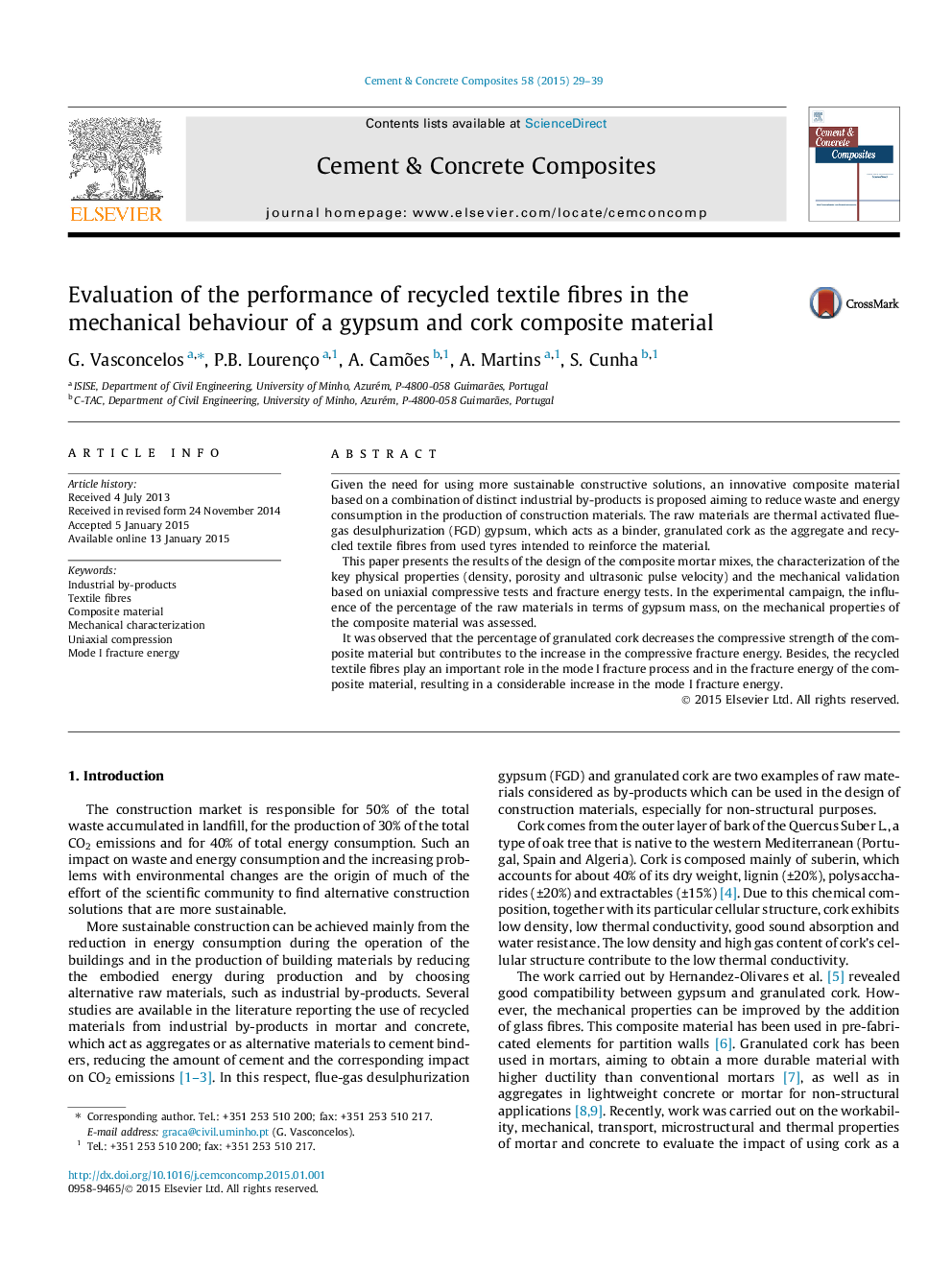| Article ID | Journal | Published Year | Pages | File Type |
|---|---|---|---|---|
| 1454605 | Cement and Concrete Composites | 2015 | 11 Pages |
Given the need for using more sustainable constructive solutions, an innovative composite material based on a combination of distinct industrial by-products is proposed aiming to reduce waste and energy consumption in the production of construction materials. The raw materials are thermal activated flue-gas desulphurization (FGD) gypsum, which acts as a binder, granulated cork as the aggregate and recycled textile fibres from used tyres intended to reinforce the material.This paper presents the results of the design of the composite mortar mixes, the characterization of the key physical properties (density, porosity and ultrasonic pulse velocity) and the mechanical validation based on uniaxial compressive tests and fracture energy tests. In the experimental campaign, the influence of the percentage of the raw materials in terms of gypsum mass, on the mechanical properties of the composite material was assessed.It was observed that the percentage of granulated cork decreases the compressive strength of the composite material but contributes to the increase in the compressive fracture energy. Besides, the recycled textile fibres play an important role in the mode I fracture process and in the fracture energy of the composite material, resulting in a considerable increase in the mode I fracture energy.
